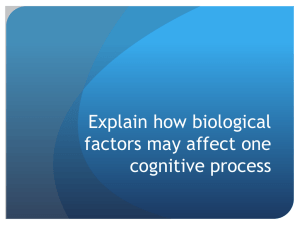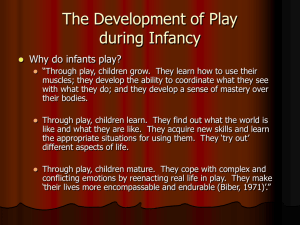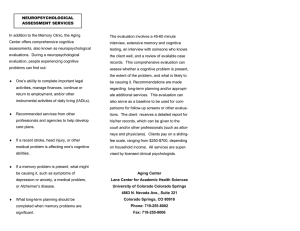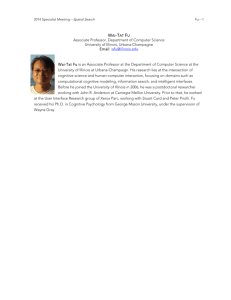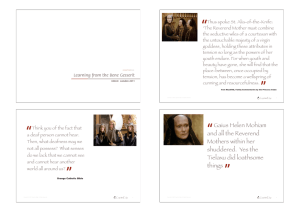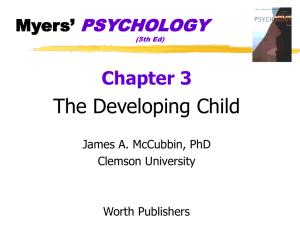Outcome at age 5 years following Neonatal Brain Injury
advertisement
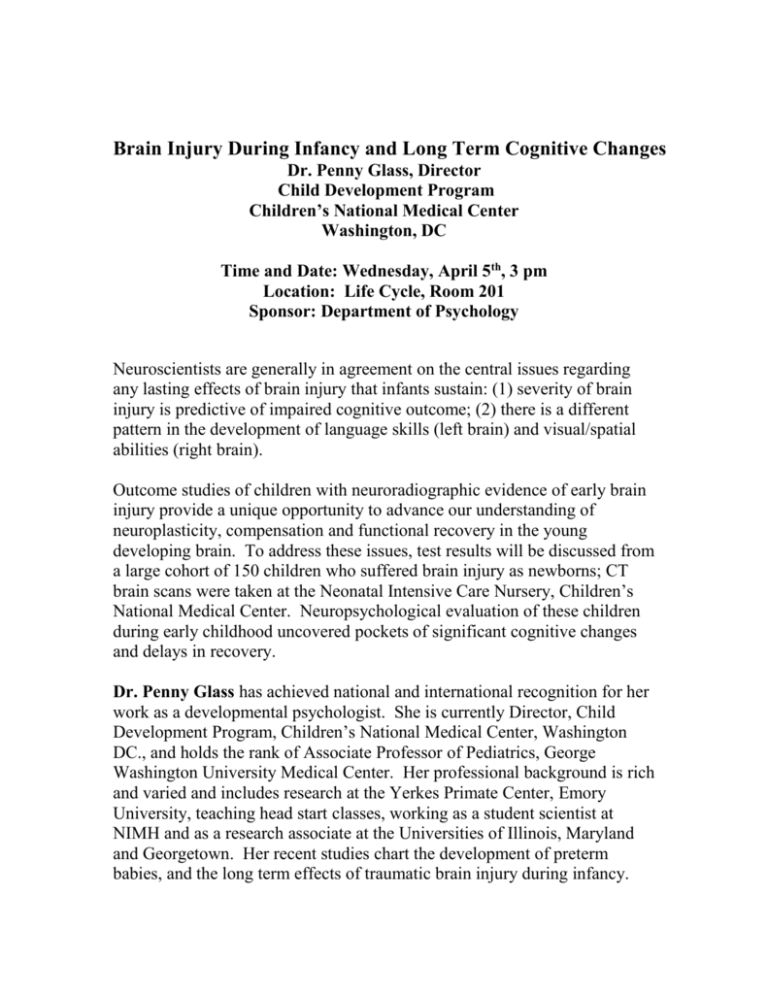
Brain Injury During Infancy and Long Term Cognitive Changes Dr. Penny Glass, Director Child Development Program Children’s National Medical Center Washington, DC Time and Date: Wednesday, April 5th, 3 pm Location: Life Cycle, Room 201 Sponsor: Department of Psychology Neuroscientists are generally in agreement on the central issues regarding any lasting effects of brain injury that infants sustain: (1) severity of brain injury is predictive of impaired cognitive outcome; (2) there is a different pattern in the development of language skills (left brain) and visual/spatial abilities (right brain). Outcome studies of children with neuroradiographic evidence of early brain injury provide a unique opportunity to advance our understanding of neuroplasticity, compensation and functional recovery in the young developing brain. To address these issues, test results will be discussed from a large cohort of 150 children who suffered brain injury as newborns; CT brain scans were taken at the Neonatal Intensive Care Nursery, Children’s National Medical Center. Neuropsychological evaluation of these children during early childhood uncovered pockets of significant cognitive changes and delays in recovery. Dr. Penny Glass has achieved national and international recognition for her work as a developmental psychologist. She is currently Director, Child Development Program, Children’s National Medical Center, Washington DC., and holds the rank of Associate Professor of Pediatrics, George Washington University Medical Center. Her professional background is rich and varied and includes research at the Yerkes Primate Center, Emory University, teaching head start classes, working as a student scientist at NIMH and as a research associate at the Universities of Illinois, Maryland and Georgetown. Her recent studies chart the development of preterm babies, and the long term effects of traumatic brain injury during infancy.
